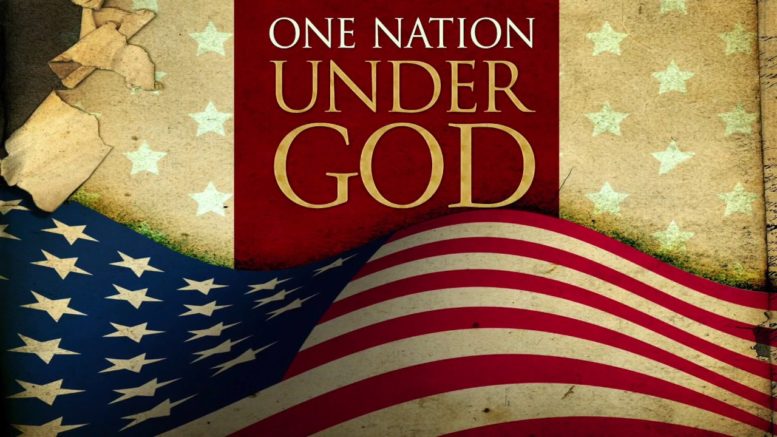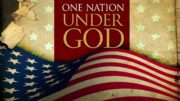Today’s article concerns epistemology. Epistemology is philosophy’s branch investigating the nature and validity of human knowledge—truth. Philosophy historically tries to answer questions related to existence, morality, and knowledge. It searches for truth. As noted last time, critical theory is simply an ideology, one where philosophy plays a key role in defining truth. As with all ideologies, this one too centers around governance—in a word, politics.
Critical theory makes claims for transforming society. To wit, “a capitalist society could be transformed only by becoming more democratic to make it such that ‘all conditions of social life that are controllable by human beings depend on real consensus’ in a rational society.”[1] Transformation requires consensus, rationality, and what critical theory labels democracy. We’ll cover this democracy latter. Consensus requires truth, and critical theory states it embraces truth. “[A] critical theory is concerned with preventing the loss of truth that past knowledge has labored to attain.”[2] So what truth does this theory embrace?
Modern Ideology’s Common Problem
All modern ideologies share a common problem.[3] They are contrary to man’s nature and purpose. This is one reason they fail. Critical theory is also irrational. However, some people choose to believe failure rests not with the ideas, but rather their implementation. They say, if we’d only done such and such instead, things would’ve been different. Well yes, different but still a failure. Critical theory’s ideas are flawed.
Below is a diagram from Schaeffer’s Escape from Reason.[4] A few Christian ideas about God, man, and their relationship include the following. God is both personal and infinite. Man is personal but finite; made to have a relationship with God—his Creator. As all things were created by God, and man is part of creation, man belongs to God. In this respect man has no choice. However, man was given the gift of free will—freedom—expressed through his ability to reason. Man chooses whether to recognize God’s authority or rebel. Those supporting critical theory choose rebellion.
Schaeffer’s diagram expresses these Christian ideas. God is personal and infinite. The right side represents the infinite aspect. God alone stands outside of time and space. Man and the rest of creation are finite. There is separation between all creation and God from this aspect. The left side represents the personal aspect. There man alone in all of existence possesses reason—God’s image. Man has the ability to communicate with his Creator. To choose to do good or evil. To love or hate. This separates man from the rest of creation, but not from God within this personal aspect.
The Problem
When ideologies such as critical theory deny God, they cut man loose from reason’s source. Reason becomes autonomous. Man becomes either a mere machine or makes an irrational leap to explain his existence, morality, and knowledge. Just like all God’s gifts, when we deny their source we lose the gift’s benefit. God’s gifts to us remain, but they do us no good.
Some may say we support critical theory, but don’t deny God. But they must explain why critical theory denies the absolute truths forming society’s foundations for the last two thousand years. The truths supporting the miraculous developments improving lives beginning the in Middle Ages up through the Industrial Revolution. The creation of ideas such as individual freedom and personal liberty, in addition to all the inventions springing from those ideas enabling us to do so much today. Christian absolute truths provide their source. These ideas began with Rome’s fall. More about this next time. Bottom line is one cannot say they support God’s absolute truth, but then deny it because it contradicts a relative truth.
Such ‘modern’ ideologies as critical theory cannot even explain the simplest of things. Take language. Rousseau, Hobbes, and others go through pages and pages trying to explain how language developed. But in the end, all such attempts fail. However, scripture provides a very simple answer. Man received the gift of language when created. It was man who named all God’s creatures—not God. (Gen. 2:19) I mention language specifically because it is a fundamental part of critical theory. Critical theory relies on something it cannot explain.
The Christian Answer
Before we end this section, a few words about this topic’s Judeo-Christian concepts. They are really quite simple. God alone is infinite; therefore He alone is the source for all existence, morality, and knowledge. He is Creator of everything that has ever been created. God is not only good, but the source of all good. The proof lies in both His giving creation existence in the first place, and then providing the means for its continued existence. God is love. Love is good.
Finally, God provides man with a basis for knowledge through His creation, scripture, Christ’s example, and His image we each possess. Our purpose is to become good as He is good. Becoming good requires learning to discern good from evil, and then choosing good. Through study, reflection, and a better understanding of ourselves, we gain a greater understanding of God—our maker. By comparison, critical theory makes man the final arbitrator of God’s gifts, scripture, and example; allowing man to pick and choose what he accepts and rejects. Man attempting to justify his rebellion, at least to himself.
Implications
Christianity states man was created good, but corrupted by his own choices. It is our rebellion against God that results in evil (sin). Critical theory believes the opposite. Man is bad. Therefore, not all good ends can be achieved by good means. This thought isn’t new. It comes directly from Machiavelli and others, and lead us back to pagan forms of virtue and morality. It’s a lie.
Critical theory examines an outcome to identify oppression (injustice), and then suggests its cause (oppressor). Society’s institutions are then used to transform it. “This project [cooperation between philosophy and the social sciences] shifts the goal of critical social inquiry from human emancipation as such, to the primary concern with democratic institutions as the location for the realization of freedom and equality.”[5] Freedom and equality come from government, not God.
Such ideas also leave critical theory with pagan notions of concepts such as the basis for choice, values, and rights. These appear in the table at the article’s end.
Critical Theory and ‘Democracy’
Critical theory achieves its human emancipation goal through societal institutions. Democratic institutions. Within critical theory, democracy is a “particular structure of free and open communication.” Its democracy uses a “special form of reflective and reciprocal communication and public testing of claims to validity … Democratic institutions have the proper reflexive structure … In them, citizens deliberate as free and equal persons.”[6] Fancy words. But citizens are no longer free and equal by nature, but rather through society’s institutions created by man. Within this approach “rationality consists not so much in the possession of knowledge … but rather in ‘how speaking and acting subjects acquire and use knowledge.’”
Emphasis shifts from belief to the means for its use and evolution. There is no room for absolutes. Communication produces a consensus developing societal norms. These norms “can be made explicit in various rights, including civil rights of participation and free expression.” However, these norms “must be expressed through law.” Again, the notions of equality of nature and inherent rights are rejected. Replaced by societal norms expressed through human law alone. These ideas also go back to Hobbes, Spinoza, and Rousseau—among others. These ideas have profound implications for rights and justice, where we’ll pick up next time.
One final point in closing. Within critical theory’s framework, ideology is seen as bad. “Ideology restricts or limits such processes of communication, and undermines the conditions of success within them.” And, as noted above, critical theory emphasizes using communication within democratic institutions. This is fantastic as critical theory is nothing more than ideology. By its own definition, critical theory undermines democratic institutions and therefore must create oppression. Go figure.
Comparison of Christian, critical theory, and pagan ideas
|
Idea |
Christianity |
Critical theory |
Greek philosophy |
|
Supreme Authority |
God |
Man |
First cause |
|
Religion Focus |
God |
Man |
god(s), created by man |
|
Ideology |
Man, influenced by God’s natural rights and divine law |
Man, influenced by his own reason |
Man, search for truth of existence, morality, and knowledge |
|
Man’s nature |
Equality of nature, only one race – the human race |
Some more equal than others, class existence |
Some more equal than others, class existence |
|
Values |
God/man’s values to align with God’s |
Man |
Man |
|
Motivation |
Self-sacrifice |
Self-interest |
Self-interest |
|
Basis for Choice |
Reason and discernment |
Appetite and emotions |
Reason and discernment |
|
Virtue |
Good or evil – absolute choices |
Good and evil – a mixture |
Good and evil – a mixture |
|
Basis for Rights |
Righteousness God |
Power Human law |
Power Human law |
|
Existence |
God |
Various |
First cause |
|
Morality |
God |
Man |
Man |
|
Knowledge |
God |
Man |
Man |
Footnotes:
[1] Bohman, James, “Critical Theory”, The Stanford Encyclopedia of Philosophy (Winter 2019 Edition), Edward N. Zalta (ed.), URL = <https://plato.stanford.edu/archives/win2019/entries/critical-theory/>. Accessed Sept., 2020.
[2] Ibid.
[3] Wolf, Dan, pp. 1-138, The Light & The Rod, Vol. 2, Biblical Governance Corruptions, Living Rightly Publications, 2020.
[4] Schaeffer, Francis A., p. 26, Escape from Reason, InterVarsity Press, 1968.
[5] Bohman, James, “Critical Theory”, The Stanford Encyclopedia of Philosophy (Winter 2019 Edition), Edward N. Zalta (ed.), URL = <https://plato.stanford.edu/archives/win2019/entries/critical-theory/>. Accessed Sept., 2020. “
[6] Ibid, as are the remaining quotations.




